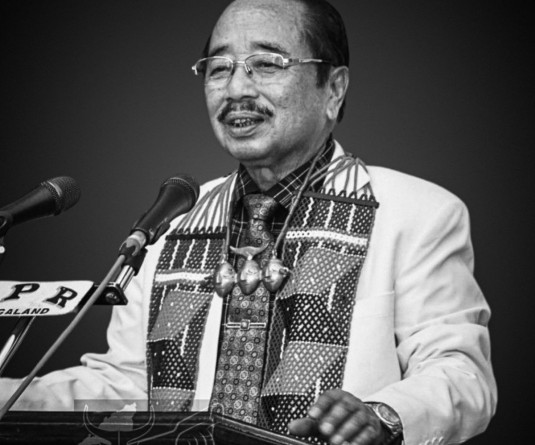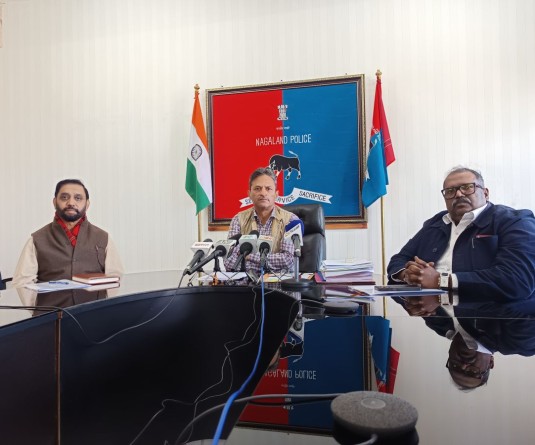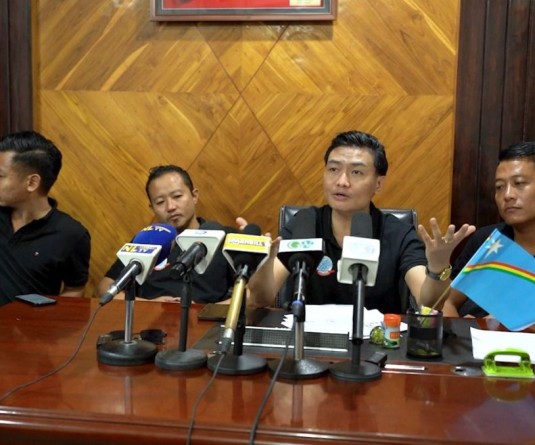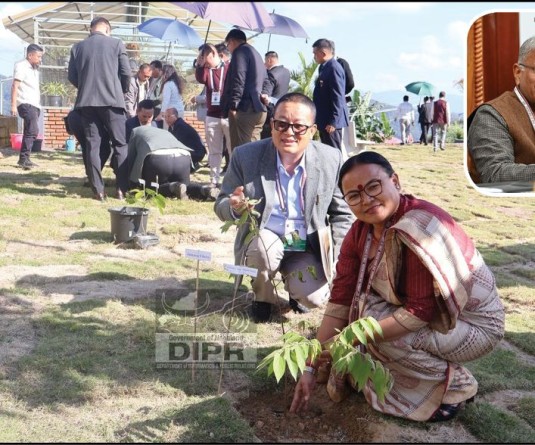
DIMAPUR, JUNE 28 (MExN): The Nagaland Tribes Council (NTC) today issued a statement containing several recommendations to the Nagaland State Government regarding revenue, land rights and citizenship in Nagaland State.
These recommendations come in light of a recent consultative meet organized by the NTC, a statement from the council’s media cell informed. They referred to issues concerning the Nagaland Special Development Zone; government proposals on cadastral survey in the state; Nagaland Land Revenue amendment Act, 1978; GoI’s proposal on Citizenship Amendment Bill, 2016; Rongmei Tribe Recognition; and Bengal Eastern Regulation Act of 1873.
Strengthen BEFR Act
With regard to the BEFR Act, the NTC called for its strengthening and extension of its coverage to the entire administrative jurisdiction of Nagaland. It also asked for the creation of a separate cell under the Home department to monitor strict enforcement of BEFR, Foreigners Act and Indian Passport Act on day to day basis while providing necessary trainings to enforcement agencies to be equipped with the relevant enforcement laws, standard operation procedure and guidelines.
The NTC called upon the government to realize that while the exclusion of Dimapur from ILP coverage has “become the anti-thesis of the policy of reservation.” Dimapur, it stated, has “become the buffer zone for the massive migration of illegal immigrants besides being the launching ground for their exploitive activities.”
The NTC further expressed concern that the “flood gate for unwanted population is usually opened by no other than the enforcing agencies of the State Government.” It cautioned that when the Government of Assam intensifies its NRC process and streamlining of its citizenship, “Nagaland is unarguably the soft target.” It added that in view of the ongoing trends, Nagaland is facing the most vulnerable phase lest the Government acts befittingly.
The meeting further urged upon the State Government to implement the Nagaland Land and Revenue (amendment) Act, 1978 in letter and in spirit by sending necessary instructions to the concern Deputy Commissioners, Revenue Officers and Village authorities to strictly adhere to the law and “protect our land and properties as per the law of the land.”
It also asked the Nagaland GBs Federation to instruct its federating units to strictly enforce the act in their respective villages and maintain record of land transfer and registration within its respective administrative jurisdictions.
Discard NSDZ resolution
With regard to the Nagaland special Development Zones (NSDZ), the NTC observed that within the said cadastral areas, the special protective laws of Nagaland such as Article 371A, BEFR Act, 1873 (ILP) and Nagaland Land and Revenue (amendment) Act, 1978 shall not be applicable.
“The whole intention of NSDZ is to curve out the plain sector of Nagaland State for outsiders for permanent settlement. Such decision is anti-thesis to the special Category State and suicidal for the indigenous citizens of the state,” it opined and asked the state government to revoke the resolution.
Opposes cadastral survey
The consultative meet also deliberated on the state government’s proposal for a cadastral survey, and stated that “once the State of Nagaland is placed under cadastral survey, the land owners are bound to pay land tax to State Government.”
It argued that this would do away the indigenous right of land ownership. Terming this as “detrimental to our fundamental rights,” the NTC cautioned the state government not to dilute the tribal rights, traditions and culture.
The NTC also touched on the Citizenship Amendment Bill, 2016, and stated that “citizenship based on religious consideration is dangerous and it contravenes secular principle of Indian constitution.” It alleged that the “hidden agenda of this bill is to divide citizens on the basis of religion and to bring about Uniform Civil Code (UCC) which is aimed at One Nation, One religion.”
The meeting expressed solidarity to neighboring states opposing the bill and urged the Government of Nagaland to oppose the same. If not, the NTC cautioned that the government “should be ready to be responsible of what the ramifications of the Bill will be when it becomes an Act.”
Rongmei tribe recognition
Finally, on the Rongmei Tribe recognition issue, the NTC stated that the Rongmeis in Nagaland “are treated at par with the rest of the indigenous inhabitants of Nagaland.”
It further expressed support to the cabinet decision of the then DAN government for derecognizing Rongmei as a tribe in Nagaland.
The NTC termed it “disheartening to note that Rongmeis had the temerity to go to the court challenging the revocation order of Nagaland Government.”






